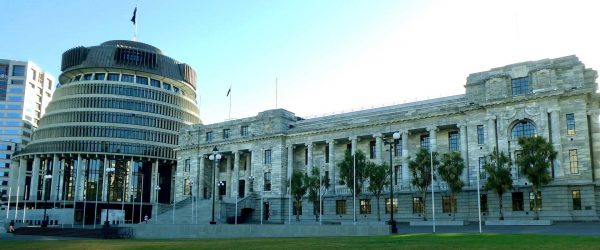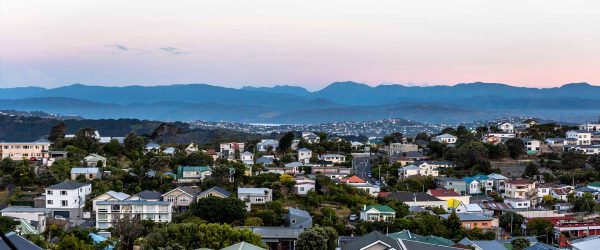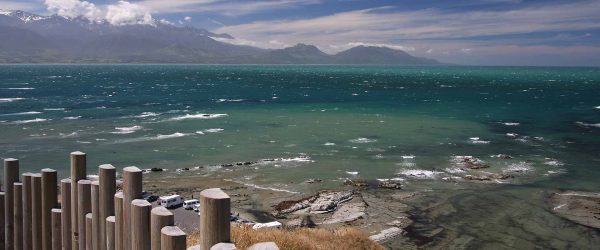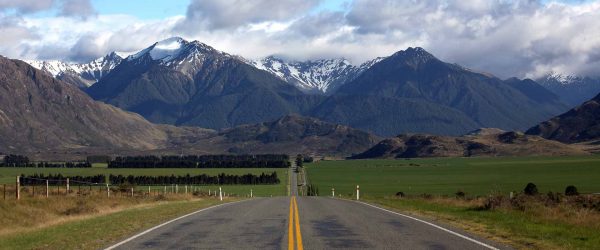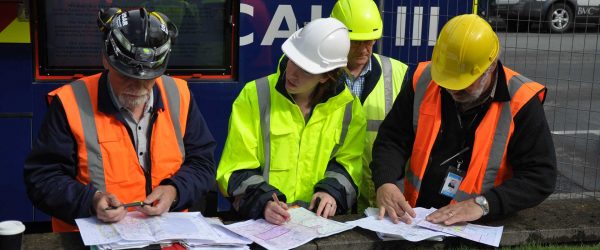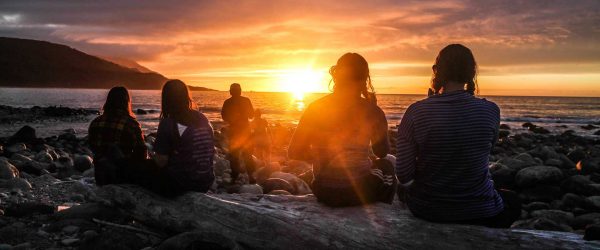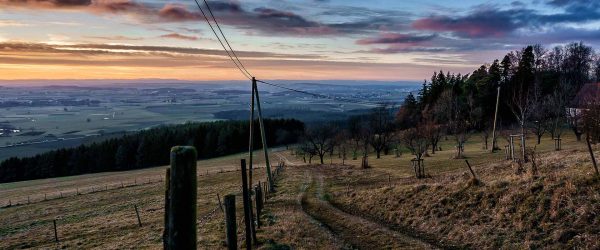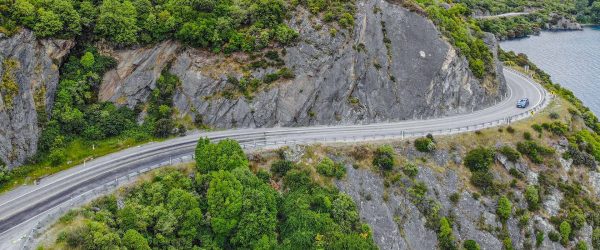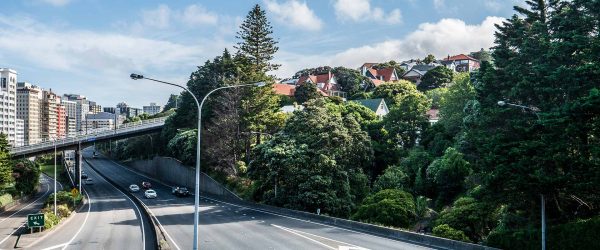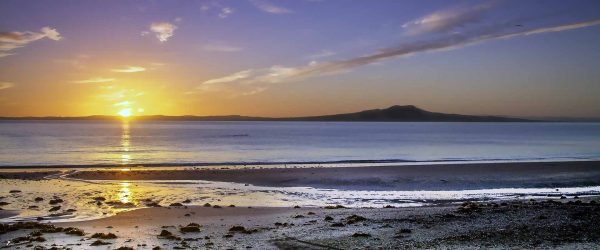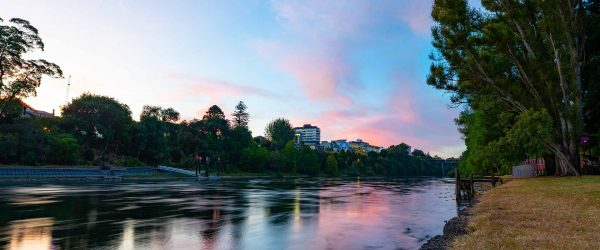Enhancing Resilience and Well-being
Te Whakakaha i te Manawaroa me te Oranga
Vision
Enhanced community resilience as a result of building capability and capacity to cope with disruptions and shocks, and to adapt to and change in new circumstances.
Project description
The speed and extent of recovery from natural hazard events often vary significantly across communities depending on factors such as socio-economic status, the level of external support and aid, past experience of disasters and the nature and severity of the disaster.
Working with our stakeholders in central and local government and other third parties, including the New Zealand Red Cross, we aim to obtain a deeper understanding of the contextual nature of vulnerability and provide additional insight into effective pathways for addressing the underlying causes of risk, to enhance wellbeing and resilience in the face of disruptions and shocks.
To achieve this, we are developing new tools and processes to enhance wellbeing and resilience, including Serious Games and a methodological toolbox for assessing adaptation, transformation and resilience.
Case studies on regional and urban food security, rural and urban and precarious livelihoods are providing new insight into the factors that enhance wellbeing and contribute to resilient communities, focusing on the social connectivity, networks and relationships that bind individuals and communities together.
By working with some of Aotearoa New Zealand’s most vulnerable to enhance everyday wellbeing and resilience – socially, ecologically and culturally – we can increase the capacity for communities to bounce back from immediate shocks and help them pro-actively respond to slow-building changes and avoid potential disasters.
Wawata
Ka pakari ake te manawaroa o te hapori nā runga i te whakawhanake i te āheinga me te raukaha ki te whakahaere i ngā whakararutanga me ngā ohoreretanga, me te urutau ki ngā āhuatanga hou.
Whakaahuatanga papatono
I te nuinga o te wā ka rerekē rawa te tere me te whānui o te whakaoranga i ngā takunetanga mōrearea o te taiao puta noa i ngā hapori maha, ā, kei te āhua tonu o ngā āhuatanga pēra i te tūnga ohapori, te taumata o te tautoko me te āwhina ā-waho, ngā wheako aituā o mua me te āhua, te taikaha hoki o te aituā.
Mā te mahi tahi atu ki te hunga whaipānga i te kāwanatanga ā-motu, ā-rohe, me ētahi atu tōpūtanga, tae atu ki te Rīpeka Whero Aotearoa, e whai ana mātou ki te rapu i te māramatanga hōhonu ake ki ngā āhuatanga o te horopaki o te whakaraerae, ki te tuku hoki i ētahi atu tirohanga ki ngā ara whai hua hei urupare i ngā pūtake o te tūraru, ki te whakapakari i te oranga me te manawaroa i roto i ngā whakararutanga me ngā ohoreretanga.
Hei whakatutuki i tēnei, e whakawhanake ana mātou i ngā rauemi me ngā tukanga hei whakapakari i te oranga me te manawaroa, tae atu ki Serious Games me tētahi keteparaha tikanga hei aromatawai i ngā urutaunga, whakaumutanga me te manawaroa.
E tuku ana ngā take rangahau mō ngā haumarutanga kai ā-rohe, ā-taone, te tuawhenua, te taone me te whiwhinga moni pānekeneke, i ngā tirohanga hou ki ngā āhuatanga e whakapakari nei i te oranga, e whai hua hoki ki te manawaroa o ngā hapori, e aro ana ki ngā hononga pāpori, ngā whatunga me ngā whanaungatanga e here nei i te tangata me te hapori.
Mā te mahi tahi ki ētahi o te hunga whakaraerae rawa hei whakapakari i te oranga o ia rā me te manawaroa – ā-papori, ā-hauropi, ā-ahurea – ka whakawhānui ake i te raukaha o ngā hapori ki te puta ora i ngā ohoreretanga wawe, ki te āwhina hoki i a rātou ki te whai urupare ake ki ngā panonitanga e āta tipu haere ana me te kaupare i ngā tūpono aituā.
Resource Outputs from this project
Psychosocial factors in disaster recovery
This brief focusses on psychosocial issues that may arise immediately post-disaster and how to best address the impact and reduce ongoing distress.
Natural hazard planning by New Zealand’s local government: a review of regional policy statements and district plans
Have 2017 RMA amendments aligned Regional Policy Statements and selected District Plans in adopting a ‘risk-based planning approach’ to natural hazards.
Women and Cyclone
As natural disasters become more frequent, the role of women in recovery needs to be recognised and adequately supported.
Analysis of Felt Detailed ‘Final Comments’ for the 2016 Kaikōura earthquake
S.Neupane, P.Inch, J.S. Becker, L. Vinnell, T. Goded, R. Prasanna 2024 Analysis of Felt Detailed ‘Final Comments’ for the 2016 Kaikōura earthquake Conference: New Zealand…
Bridging gaps between disaster risk reduction and drowning prevention
L. Le Dé 2024 Bridging gaps between disaster risk reduction and drowning prevention International Journal of Disaster Risk Reduction, 106, DOI: 10.1016/j.ijdrr.2024.104445
A model for understanding industry cluster development among New World wineries
S. Lembke, L. Cartier, J. Fountain, N. Cradock-Henry, L-P. Dana 2024 A model for understanding industry cluster development among New World wineries International Journal of…
Chinese tourists’ vulnerability to natural hazard events in New Zealand
Fountain, J., Cui, Q., Espiner, S. & Cradock-Henry, N. 2024 Chinese tourists’ vulnerability to natural hazard events in New Zealand Handbook on Crisis and Disaster…
Differences in perceived sources of uncertainty in natural hazards science advice: lessons for cross-disciplinary communication
E.E.H. Doyle, J. Thompson, S.R. Hill, M. Williams, D. Paton, S.E. Harrison, A. Bostrom, J.S. Becker 2024 Differences in perceived sources of uncertainty in natural…
Aotearoa New Zealand needs a unified food strategy
The state of our current food system and why we need a unified food strategy.
Food systems security and disaster recovery
An outline of food security issues that may arise following a disaster
A new mapping tool to visualise critical infrastructure levels of service following a major earthquake
R. Mowll, M. Anderson, T. Logan, J. Becker, L. Wotherspoon, C. Stewart, D. Johnston, D. Neely 2024 A new mapping tool to visualise critical infrastructure…
A GIS-based framework for climate change risk assessment of integrated horizontal infrastructure network
A. Hasanah, T.F.P. Henning, L. Wotherspoon, K. Hayward 2024 A GIS-based framework for climate change risk assessment of integrated horizontal infrastructure network 2024 Transport Research…
Measuring the impact of food rescue: A social return on investment analysis
How food rescue creates value for food donors, recipient organisations, volunteers, and recipients, suggesting that every $1 spent delivers $4.50 in social value.
‘As a farmer you’ve just got to learn to cope’: Understanding dairy farmers’ perceptions of climate change and adaptation decisions in the lower south Island of Aotearoa-New Zealand.
Adapting to climate change in an equitable and transformational manner is dependent on understanding the underlying root causes of vulnerability alongside local knowledge and values.
Adaptive and Interactive Futures: Developing “Serious Games” for Coastal Community Engagement and Decision-Making
Serious games can explore value-laden and contested decisions and support learning in diverse communities of stakeholders, making them a great tool for climate change adaptation.
Decisions, options, and actions in the face of uncertainty: a systematic bibliometric and thematic review of climate adaptation pathways
A systematic review identifying and assessing Adaptation Pathways (APs) as roadmaps to support planning in the face of climate change-related uncertainty.
Ensuring access to needle exchange services in disasters
This study looks at the experience of people who inject drugs on the West Coast to understand how disasters impact their access to safe equipment.
Creating a post-earthquake emergency sanitation plan for the Wellington region, Aotearoa New Zealand
Mowll, R. ., Stewart, C., Neely, D.P., Brenin, M., Fisher, M., Loodin, N., & Hutchison, S. (2022). Creating a post-earthquake emergency sanitation plan for the…
Measuring Impact of Food Rescue in Aotearoa New Zealand: A Social Return on Investment
Clare, G., Lee, L., & Diprose, G. (2022). Measuring Impact of Food Rescue in Aotearoa New Zealand: A Social Return on Investment. https://impact.afra.org.nz/
Land management change as adaptation to climate and other stressors: a systematic review of decision contexts using values-rules-knowledge
Cradock-Henry, N.A. & Kirk, N. (2022) Land management change as adaptation to climate and other stressors: a systematic review of decision contexts using values-rules-knowledge. Land, 11(6), 791.…
Presentation slides, ‘Social Vulnerability in Disasters’ webinar
Dr Denise Blake, Dr Shiloh Groot, Melanie Roundhill, Vy Tran, Anne Rijnink, Tycho Vandenburg, 'Social Vulnerability in Disasters' webinar, 15 September 2022.
Views from nowhere, somewhere and everywhere else: The tragedy of the horizon in the early Anthropocene
Frame, B. & Cradock-Henry, N.A. 2022. Views from nowhere, somewhere and everywhere else: The tragedy of the horizon in the early Anthropocene. The Anthropocene Review,…
AR6 Climate Change 2022: Impacts, Adaptation and Vulnerability — IPCC. Chapter 11 – Australasia
Lawrence, J., B. Mackey, F. Chiew, M.J. Costello, K. Hennessy, N. Lansbury, U.B. Nidumolu, G. Pecl, L. Rickards, N. Tapper, A. Woodward, and A. Wreford,…
Food rescue as collective care
Diprose, G. & Lee, L. 2021. Food rescue as collective care. Area, 54(1): 144-151. doi:10.1111/area.12762
Principles and process for developing participatory adaptation pathways in the primary industries
Nicholas A. Cradock-Henry, Paula Blackett, Justin Connolly, Bob Frame, Edmar Teixeira, Paul Johnstone, Anita Wreford; Principles and process for developing participatory adaptation pathways in the…
Flexible policy pathways for enabling climate change adaptation
Nicholas Cradock-Henry, Justin Connolly, Paula Blackett, Nick Kirk. Flexible policy pathways for enabling climate change adaptation MPI Technical Paper No: 2022/09. Prepared for Ministry for…
Towards local-parallel scenarios for climate change impacts, adaptation and vulnerability
Nicholas A. Cradock-Henry, Gradon Diprose, Bob Frame. Towards local-parallel scenarios for climate change impacts, adaptation and vulnerability, Climate Risk Management, Volume 34, 2021, https://doi.org/10.1016/j.crm.2021.100372.
The impact of earthquakes on apartment owners and renters in Te Whanganui-a-Tara (Wellington) Aotearoa New Zealand
Blake D, Becker JS, Hodgetts D, Elwood KJ. The Impact of Earthquakes on Apartment Owners and Renters in Te Whanganui-a-Tara (Wellington) Aotearoa New Zealand. Applied…
Adaptive and interactive climate futures: systematic review of ‘serious games’ for engagement and decision-making.
Flood S, Cradock-Henry NA, Blackett P, Edwards P. 2018. Adaptive and interactive climate futures: systematic review of ‘serious games’ for engagement and decision-making. Environmental Research…
Climate adaptation pathways for agriculture: Insights from a participatory process
Cradock-Henry NA, Blackett P, Hall M, Johnstone P, Teixeira E, Wreford A. 2020. Climate adaptation pathways for agriculture: Insights from a participatory process. Environmental Science…
Balancing scales: Enhancing local applications of adaptation pathways
Cradock-Henry NA, Frame B. 2021. Balancing scales: Enhancing local applications of adaptation pathways. Environmental Science & Policy. 121:42–48. doi:10.1016/j.envsci.2021.04.001.
Stigma and disaster risk reduction among vulnerable groups: Considering people receiving opioid substitution treatment.
Blake, D., Pooley, S. & Lyons, A. (2020) Stigma and disaster risk reduction among vulnerable groups: Considering people receiving opioid substitution treatment. International Journal of…
Ethics and equity in the time of Coronavirus
Hall KH, Doolan-Noble F, McKinlay E, Currie O, Gray B, Gray L, Richard L, Stubbe M, Jaye C. 2020. Ethics and equity in the time…
Cascading climate change impacts and implications
Lawrence J, Blackett P, Cradock-Henry NA. 2020. Cascading climate change impacts and implications. Climate Risk Management. 29:100234. doi:10.1016/j.crm.2020.100234.
Transforming knowledge systems for life on Earth: Visions of future systems and how to get there
Fazey I, Schäpke N, Caniglia G, Hodgson A, Kendrick I, Lyon C, Page G, Patterson J, Riedy C, Strasser T, et al. 2020. Transforming knowledge…
Water dripping on a stone’: a feasibility study of a healthy weight management conversation approach in routine general practice consultations.
Hilder J, Gray L, Stubbe M, Duncan S, Dowell AC. 2020. ‘Water dripping on a stone’: a feasibility study of a healthy weight management conversation…
Providing care for older adults with extreme obesity in aged residential care facilities: An environmental scan.
Hales C, Amankwaa I, Gray L, Rook H. 2020. Providing care for older adults with extreme obesity in aged residential care facilities: an environmental scan.…
Factors influencing individual ability to follow physical distancing recommendations in Aotearoa New Zealand during the COVID-19 pandemic: a population survey
Gray L, Rose SB, Stanley J, Zhang J, Tassell-Matamua N, Puloka V, Kvalsvig A, Wiles S, Murton SA, Johnston DM, et al. 2021. Factors influencing…
Characterising resilience in the wine industry: Insights and evidence from Marlborough, New Zealand
Cradock-Henry NA, Fountain J. 2019. Characterising resilience in the wine industry: insights and evidence from Marlborough, New Zealand. Environmental Science & Policy. 94:182-190. doi:10.1016/j.envsci.2019.01.015.
Transformations for Resilient Rural Futures: The Case of Kaikōura, Aotearoa New Zealand.
Cradock-Henry NA, Fountain J, Buelow F. 2018. Transformations for resilient rural futures: the case of Kaikōura, Aotearoa-New Zealand. Sustainability. 10(6):1952. doi:10.3390/su10061952
Festivals as devices for enhancing social connectivity and the resilience of rural communities.
Mackay M, Fountain J, Cradock-Henry N. 2018. Festivals as devices for enhancing social connectivity and the resilience of rural communities. In: Mair J, editor. The…
Elaborating a systems methodology for cascading climate change impacts and implications
Cradock-Henry NA, Connolly J, Blackett P, Lawrence J. 2020. Elaborating a systems methodology for cascading climate change impacts and implications. MethodsX. 7:100893. doi:10.1016/j.mex.2020.100893
Preparedness and recovery as a privilege in the context of COVID-19.
Denise Blake, April 2020. 'Preparedness and recovery as a privilege in the context of COVID-19', Economic and Social Research Aotearoa.
Advancing practical applications of resilience in Aotearoa New Zealand.
D. Wither, C. Orchiston, N.A. Cradock-Henry, E. Nel (2021) Advancing practical applications of resilience in Aotearoa New Zealand. Ecology and Society 26(3):1. https://doi.org/10.5751/ES-12409-260301
Fear, history, stigma and bias in the COVID-19 pandemic
Kupietz K, Gray L. Fear, history, stigma, and bias in the COVID-19 pandemic. Journal of Emergency Management. 2021 Special Issue on COVID-19. doi: 10.5055/jem.0541. PMID:…
Characterising rural resilience in Aotearoa New Zealand: a systematic review
Providing a baseline to track the progress and effectiveness of resilience interventions and help inform current and future research priorities.
Extreme Weather and Geohazards in the time of COVID-19: A social science research agenda
McBride SK, Kurtz, E, Hondula D, Shah P, de Groot R, Bostrom A. 2020. Extreme weather and geohazards int he time of COVID-19: a social…
Resisting the problematisation of fatness in COVID-19: In pursuit of health justice.
Pausé C, Parker G, Gray L. 2021. Resisting the problematisation of fatness in COVID-19: in pursuit of health justice. International Journal of Disaster Risk Reduction.…
Tools for adaptive governance for complex social-ecological systems: a review of role-playing-games as serious games at the community-policy interface.
Edwards P, Sharma-Wallace L, Wreford A, Holt L, Cradock-Henry NA, Flood S, Velarde SJ. 2019. Tools for adaptive governance for complex social-ecological systems: a review…
Adaptive and interactive futures: A serious game for decision-making and coastal hazards.
Blackett P, Davies K, Holland P, Davies B, Cradock-Henry N. 2019. Adaptive and interactive futures: a serious game for decision-making and coastal hazards. In: Pinal…
